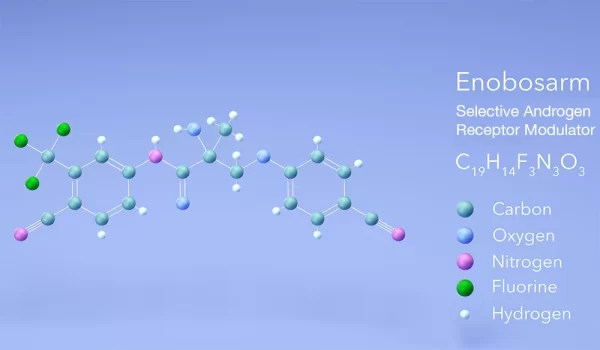Introduction
Men’s sexual health is a cornerstone of overall well-being, often underestimated or misunderstood due to cultural stigmas and societal hesitance. It encompasses not only physiological aspects like sexual function and reproductive capabilities but also touches on emotional and psychological health aspects, such as self-esteem and relationship dynamics [1]. Moreover, it often serves as a barometer for men’s overall health, with conditions like erectile dysfunction (ED) potentially indicative of serious health issues like cardiovascular diseases [3].
A Closer Look at the Importance of Men’s Sexual Health
Understanding the importance of men’s sexual health requires an appreciation of its complex nature. It goes beyond the simplistic notion of sexual performance, encapsulating other crucial factors like sexual desire, pleasure, satisfaction, and psychological implications. Sexual health is pivotal in a man’s life, affecting his identity, confidence, and interpersonal relationships. Moreover, poor sexual health often echoes broader health issues, contributing to a vicious cycle of physical and psychological distress [1].
Decoding the Challenges to Men’s Sexual Health
The journey to optimal sexual health can be hindered by various obstacles, including physiological conditions such as erectile dysfunction (ED) and premature ejaculation (PE), as well as more complex conditions like Peyronie’s disease and hormonal imbalances.
Erectile Dysfunction (ED): ED, defined as the persistent inability to achieve or maintain an erection sufficient for satisfactory sexual activity, is a prevalent issue affecting men’s sexual health. While the condition can be distressing in its own right due to its impact on sexual satisfaction and self-esteem, it can also signify underlying health problems. For instance, ED is often associated with cardiovascular disease, diabetes, obesity, or hormonal imbalances, making it a potential early warning sign of these conditions [3].
Premature Ejaculation (PE): PE, the recurrent occurrence of ejaculation earlier than desired during sexual activity, can undermine sexual satisfaction for both partners. PE can be triggered by many factors, including psychological stressors like anxiety and depression or even biological predispositions [5].
Low Libido: A decrease in sexual desire or interest, known as low libido, can be attributed to various causes. These may include aging, psychological distress, certain medications, chronic illnesses, or hormonal imbalances. Specifically, low testosterone levels can significantly dampen sexual desire [6].
Peyronie’s Disease: Peyronie’s disease involves the formation of fibrous scar tissue inside the penis, leading to bent, painful erections. This condition can make sexual intercourse challenging or even impossible due to penile curvature and associated discomfort. Further, it can spur psychological distress, potentially resulting in ED or decreased libido due to performance anxiety [11,12].
Hormonal Imbalances: Hormonal health, primarily involving testosterone, is integral to men’s sexual health. Testosterone is vital in maintaining sexual desire, erectile function, and overall energy levels. A drop in testosterone levels can result in decreased libido, ED, fatigue, mood changes, and other physical symptoms. Various factors, including aging, certain medical conditions, or specific treatments, can lead to lower testosterone levels [16].
Solutions for Improving Men’s Sexual Health
Despite these challenges, men’s sexual health can be improved and maintained through a combination of lifestyle changes, medical interventions, psychological support, and hormonal treatments.
Healthy Lifestyle Choices: The first line of defense against sexual health issues often involves lifestyle modifications. Regular exercise, a balanced diet, sufficient sleep, and limiting alcohol and nicotine can enhance sexual health by improving cardiovascular function, regulating hormone levels, and promoting mental well-being [7].
Regular Health Check-ups: Since sexual health can indicate overall health status, regular medical check-ups are crucial. These routine evaluations can help detect and treat potential health issues early, thus preventing their adverse impact on sexual health [8].
Psychological Support: Mental health is intrinsically tied to sexual health. Counseling or therapy can be beneficial in addressing stress, anxiety, depression, and other mental health issues that can adversely affect sexual performance and satisfaction [9].
Hormone Replacement Therapy (HRT): For men experiencing low testosterone levels, hormone replacement therapy can offer an effective solution. By supplementing the body’s natural testosterone production, HRT can improve libido, mood, energy levels, and sexual performance [17].
Medical Treatments: Depending on the specific sexual health issue, various treatments may be beneficial. For ED, Phosphodiesterase Type 5 Inhibitors (PDE5Is) like sildenafil (Viagra) can be effective [10]. For PE, certain antidepressants or topical anesthetics might be beneficial [5]. Treatments for Peyronie’s disease range from oral medications to reduce scar tissue and inflammation to surgical intervention in severe cases. Furthermore, psychosexual counseling can help manage the psychological impacts of these conditions [13,14,15].
Conclusion
Men’s sexual health, while complex and multifaceted, is a critical aspect of overall well-being. By understanding the various challenges that can arise and by implementing a combination of lifestyle changes, medical treatments, psychological support, and hormonal therapy, optimal sexual health can be achieved and maintained.
For treatment options please visit our ED Treatment page and or contact us at: (941) 203-8944 to set up your first consultation.
References
- Marston C, Lewis R. Analysing men’s sexual health. In: Baker P, White A, editors. Men’s Health: Global Perspective. Routledge; 2020.
- McCabe MP, Sharlip ID, Atalla E, et al. Definitions of Sexual Dysfunctions in Women and Men: A Consensus Statement From the Fourth International Consultation on Sexual Medicine 2015. J Sex Med. 2016;13(2):135-143.
- Vlachopoulos CV, Terentes-Printzios DG, Ioakeimidis NK, Aznaouridis KA, Stefanadis CI. Prediction of cardiovascular events and all-cause mortality with erectile dysfunction: a systematic review and meta-analysis of cohort studies. Circ Cardiovasc Qual Outcomes. 2013;6(1):99-109.
- NIH Consensus Conference. Impotence. NIH Consensus Development Panel on Impotence. JAMA. 1993;270(1):83-90.
- McMahon CG. Premature ejaculation. Indian J Urol. 2007;23(2):97-108.
- Bhasin S, Enzlin P, Coviello A, Basson R. Sexual dysfunction in men and women with endocrine disorders. Lancet. 2007;369(9561):597-611.
- Maiorino MI, Bellastella G, Esposito K. Lifestyle modifications and erectile dysfunction: what can be expected? Asian J Androl. 2015;17(1):5-10.
- Corona G, Rastrelli G, Maseroli E, Forti G, Maggi M. Sexual function of the ageing male. Best Pract Res Clin Endocrinol Metab. 2013;27(4):581-601.
- Brotto L, Atallah S, Johnson-Agbakwu C, et al. Psychological and Interpersonal Dimensions of Sexual Function and Dysfunction. J Sex Med. 2016;13(4):538-571.
- Hatzimouratidis K, Amar E, Eardley I, et al. Guidelines on male sexual dysfunction: erectile dysfunction and premature ejaculation. Eur Urol. 2010;57(5):804-814.
- Nelson CJ, Diblasio C, Kendirci M, Hellstrom W, Guhring P, Mulhall JP. The chronology of depression and distress in men with Peyronie’s disease. J Sex Med. 2008;5(8):1985-1990.
- Levine LA. Peyronie’s disease: a guide to clinical management. Humana Press; 2007.
- Trost LW, Gur S, Hellstrom WJ. Pharmacological management of Peyronie’s disease. Drugs. 2013;73(6):527-541.
- Levine LA, Larsen SM. Surgery for Peyronie’s disease. Asian J Androl. 2013;15(1):27-34.
- Smith JF, Walsh TJ, Conti SL, Turek P, Lue T. Risk factors for emotional and relationship problems in Peyronie’s disease. J Sex Med. 2008;5(9):2179-2184.
- Basaria S. Male hypogonadism. Lancet. 2014;383(9924):1250-1263.
- Bhasin S, Cunningham GR, Hayes FJ, et al. Testosterone therapy in men with androgen deficiency syndromes: an Endocrine Society clinical practice guideline. J Clin Endocrinol Metab. 2010;95(6):2536-2559.




